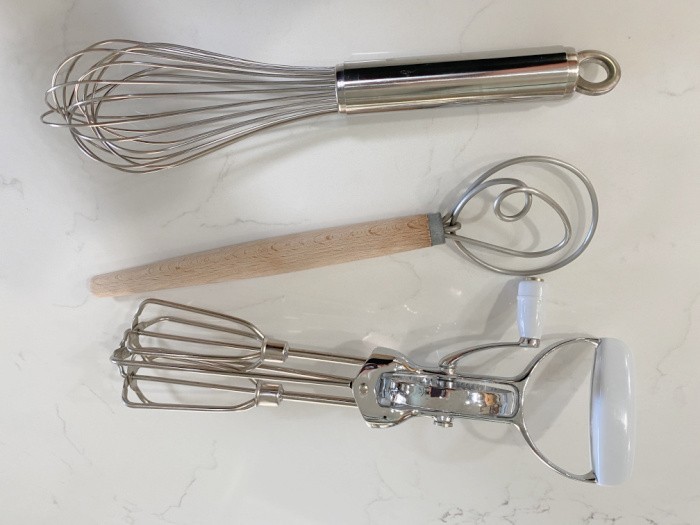
Homesteaders choose to live life a whole lot differently than most other people do. Instead of relying completely on retail stores and utilities for all of their needs, homesteaders look for ways to meet some of these challenges on their own. Striving towards a self-sufficient way of living improves not only the quality of their lives but is also kinder to their wallets. We are going to talk about these 10 homesteading skills we must know!
By choosing to have the knowledge and certain essential skills, you too can live your life without having to depend so heavily on others. After all, you never know what tomorrow may bring, and how badly you would need those skills. These are 10 homesteading skills that we must know. In case you missed this post, 30 Pioneer Skills We Cannot Lose
10 Homesteading Skills We Must Know

1. Cooking from Scratch
Millions of Americans lack the skill to cook from scratch. This mishap can be traced back to the food industry many years ago when they began introducing microwave dinners and the convenience of processed food. As a result, many grown adults depend on their next meal from companies such as Kraft, Nestle, Betty Crocker, and Kellogg’s.
Cooking meals from scratch for your family is one of the first skills every homesteader should consider learning. Homemade meals always taste much better than any prepackaged meal you’d find at the grocery store any day. Nothing compares to freshly baked bread, homemade granola bars, creamy butter, yogurt, and cheese that you made yourself. This skill will save your family a lot of money, and you’ll eat healthier, too! I use these more than any other thing in my kitchen:

2. Gardening
One of the most enjoyable homesteading skills you could learn is how to grow a garden, along with the satisfaction of watching your food grow right before your eyes. Your main goal may be to provide fruits and vegetables for your family full-time, but when you’re starting out, go with something that is easier to grow and doesn’t go too big. Gardening can be hard work; getting good enough to see adequate harvests takes time. As your growing skills improve, you’re ready to expand your gardening space and decide what you want to grow. In case you missed this post, How to Start a Garden
Please Check Out What To Plant Each Month:
- What To Plant In January
- What To Plant In February
- What To Plant In March
- What To Plant In April
- What To Plant In May
- What To Plant In June
- What To Plant In July
- What To Plant In August
- What To Plant In September
- What To Plant In October
3. Preserving Food
Preserving food allows you to enjoy your garden’s harvest all throughout the winter, and also the ability to make other foods shelf-stable for a longer period of time. You’ll have delicious fruits, veggies, jams, and salsas whenever you want them if you simply know the proper methods of pressure canning. Having a food dehydrator is another great tool to have in order to preserve your food. I have several posts on dehydrating, this one is the most popular, Dehydrating Apples
In case you missed this post, Some of the Best Ways to Purify Water
4. Foraging
Foraging the woods and your surrounding area for edible plants is another skill worth looking into. You never know if your life could depend on it one day. But you can’t just pick anything off of a plant or from the forest floor and plop it into your mouth. It could be the last unwise thing that you did. Do your research to find out what plants and berries in your area are safe to eat and which ones are toxic. Also, consider keeping a guidebook with you, but when in doubt, don’t put it in your mouth.
My friend/reader, Leanne L. suggests these foraging books: Wild Remedies by Rosalee De La Foret and Emily Han (foraging for healing foods) AND
Pacific Northwest Foraging by Douglas Deur. Both have incredible photos and information about many wild plants. Of course, Pacific Northwest Foraging is for those of us living in Washington, Oregon, Northern Idaho, and Southern British Columbia, but I am sure that some of the plants in the book are found in other states. You may want to search for a similar book for information regarding plants in your region.
5. Hunting/Fishing
Being a good hunter is a lot more than just picking up a rifle, aiming at a target, and pulling the trigger. It’s also about safety, proper technique, patience, and knowing the laws of the area where you’re planning to hunt. However, if you learn these things, you’ll be able to provide fresh meat consistently for your family, instead of having to rely on your grocery store. Most hunters prefer to take their kill to their local processor, but if you’re left to fend for yourself, you’d have to be able to properly gut, clean, and butcher any bird or animal that you killed.
Jeff, reminded me to add fishing, this is a big one for all of us to remember. Let’s teach our kids and grandkids how to fish, that’s one more source of food for us.
6. Chicken Keeping
While you may think that people who keep chickens on their property merely do so for the eggs and meat that they are provided with, there are a handful of other reasons why they do so. Yes, you’ll have some of the freshest organic eggs in town, but chickens also are good for pest control and a fertilizer-provider for your garden. Should you decide to raise them for meat, you’ll have to know how to process chickens, and also a strong enough stomach to do so. I highly recommend this book by my friend, Janet Garman: 50 Do-It-Yourself Projects for Keeping Chickens
My guess is that you don’t know everything when it comes to raising chickens, but if you’re really considering doing so in the near future, here are 5 Mistakes New Chicken Keepers Make. This article will help you be better prepared long before you have chickens roaming around your lawn.
7. First Aid Skills
Learning basic first aid skills is something that everyone should do at some point because it’s not just for homesteaders. Knowing how to dress and bandage a wound, along with how to properly perform CPR, would allow you to provide crucial medical care for someone right away, rather than having to wait for a medically-trained professional to arrive. In case you need a first aid kit, First Aid Kit.
8. Using Herbs for Healing
When a family member of yours is suffering from pain or an illness, using herbs as a medical remedy is an acquired skill you’d be glad you had. You may be surprised that most of these weeds and herbs are already available to you, you just need to know which ones are appropriate to use. Here’s more on how to use herbs to improve health and ease discomfort.
9. Making Household Cleaners
The commercial household cleaner that you buy at the store can be expensive, but you really don’t know what harmful chemicals you’re spraying around everywhere. Learning how to make your own natural household cleaners and soaps will provide you with the comfort of knowing what exactly went into making it.
10. Being Frugal
Being more frugal with your finances will help you achieve your financial goals a whole lot faster and easier when you are spending less and saving more. With this skill, it’s important to learn how to repurpose your possessions when they no longer function the way they once did, or how to repair them if possible. By watching how much electricity that you use, you’ll save both energy and money, while decreasing the carbon footprint that you leave behind. Frugal is a better way of living.
10 Homesteading Skills We Must Know
Final Word
These are just 10 homesteading skills that will help you get well on your way to a more self-sufficient way of living. They will help you feel better about yourself, and you will save a bunch of money in the process. What are some other skills and knowledge that every homesteader should consider learning? I’d love to hear from you. What are some homesteading skills we must know that you’d add to this list because they’ve worked for you? May God Bless this world, Linda
Copyright Images: Still Life with white eggs Deposit photos_19971723_s-2019
The post 10 Homesteading Skills We Must Know appeared first on Food Storage Moms.
from Food Storage Moms
No comments:
Post a Comment